Reading comprehension Easy Reading Non-Fiction Worksheets for Ages 3-8
8 filtered results
-
From - To
Discover our engaging "Reading Comprehension Easy Non-Fiction Worksheets" designed specifically for ages 3-8! These printable worksheets provide young learners with an enjoyable way to enhance their reading skills while exploring fascinating non-fiction topics. Each worksheet encourages kids to delve into simple texts, answer comprehension questions, and strengthen their critical thinking abilities. Perfect for preschool and early elementary students, our resources cater to various learning styles, making reading fun and accessible. Help your child build a strong foundation in literacy with these creative and effective worksheets that spark curiosity and encourage a lifelong love for reading! Join us today for a literary adventure!
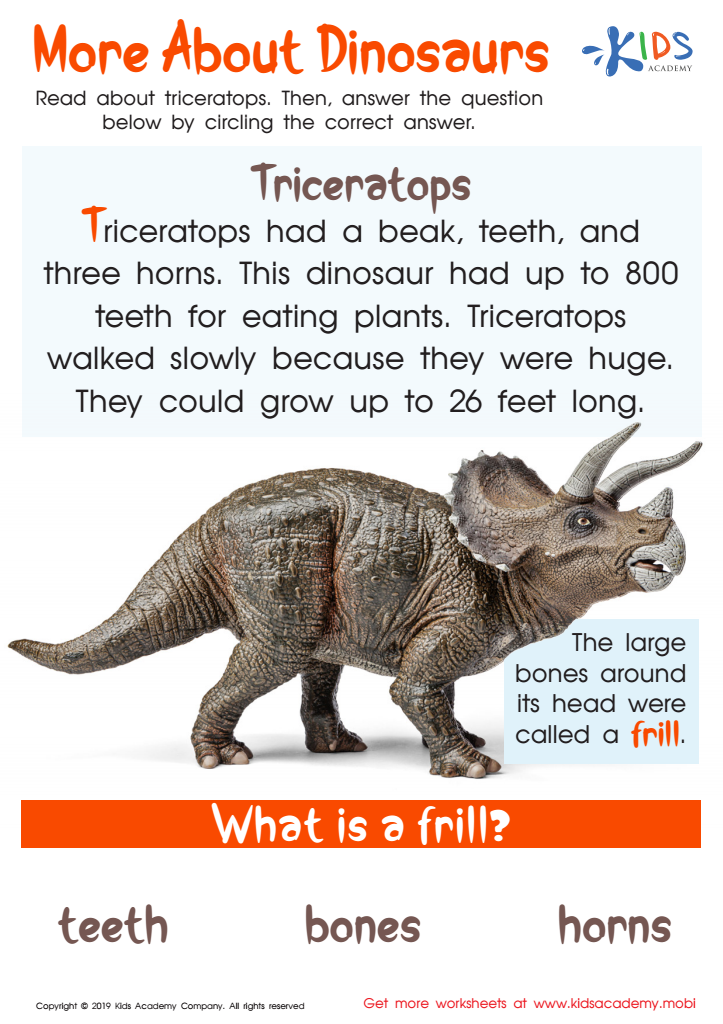

More About Dinosaurs Worksheet
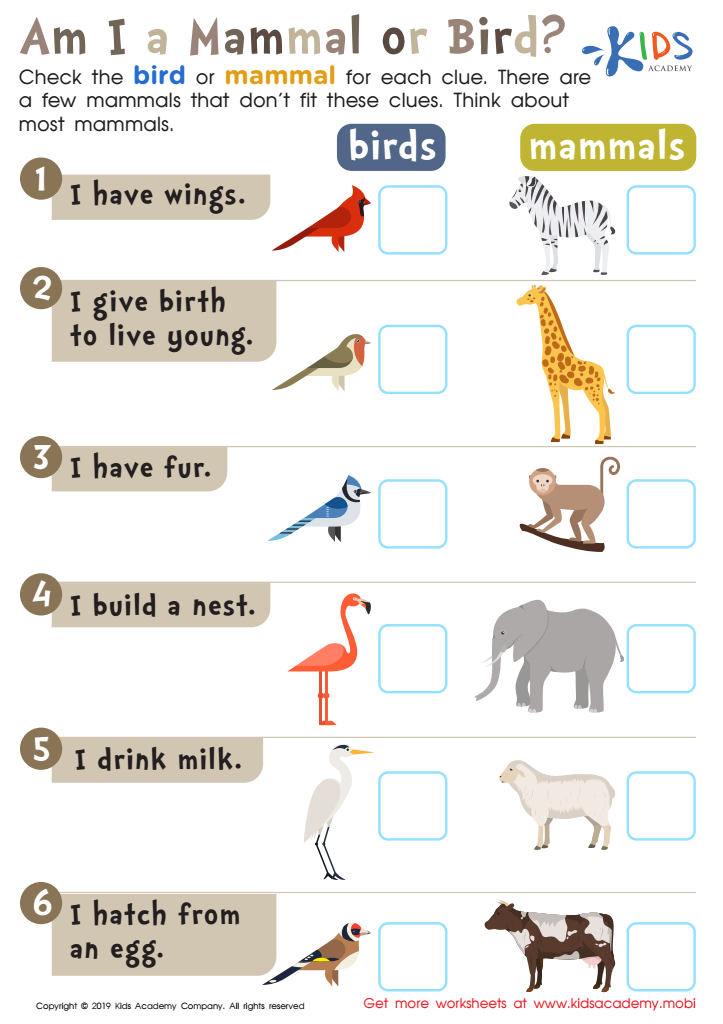

Am I a Mammal or Bird? Worksheet
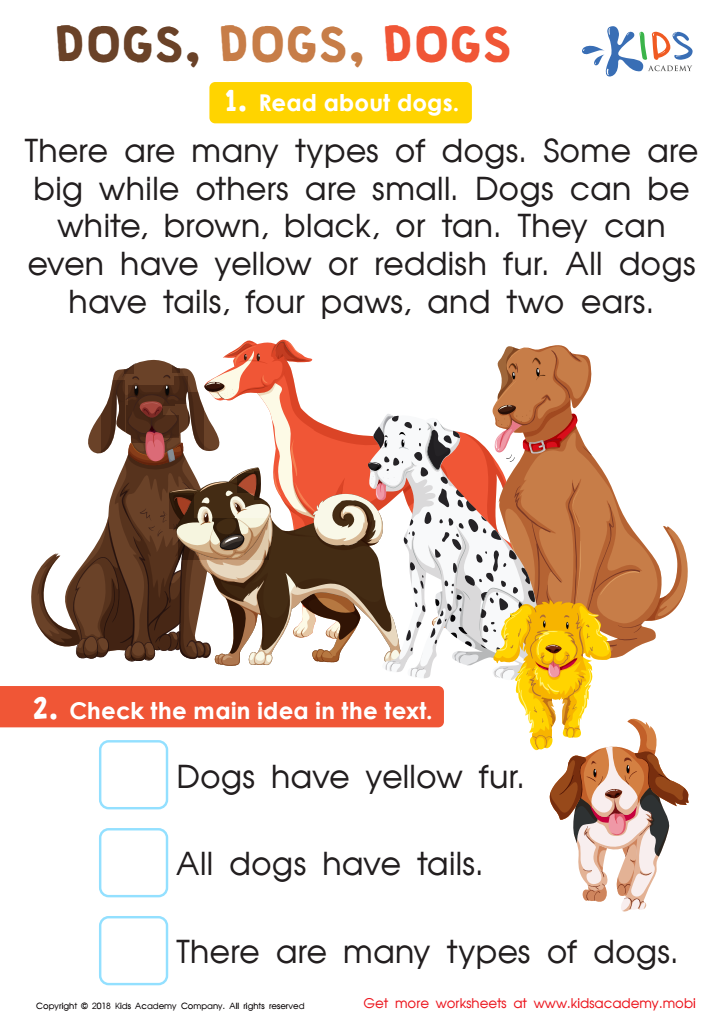

Dogs, Dogs Worksheet
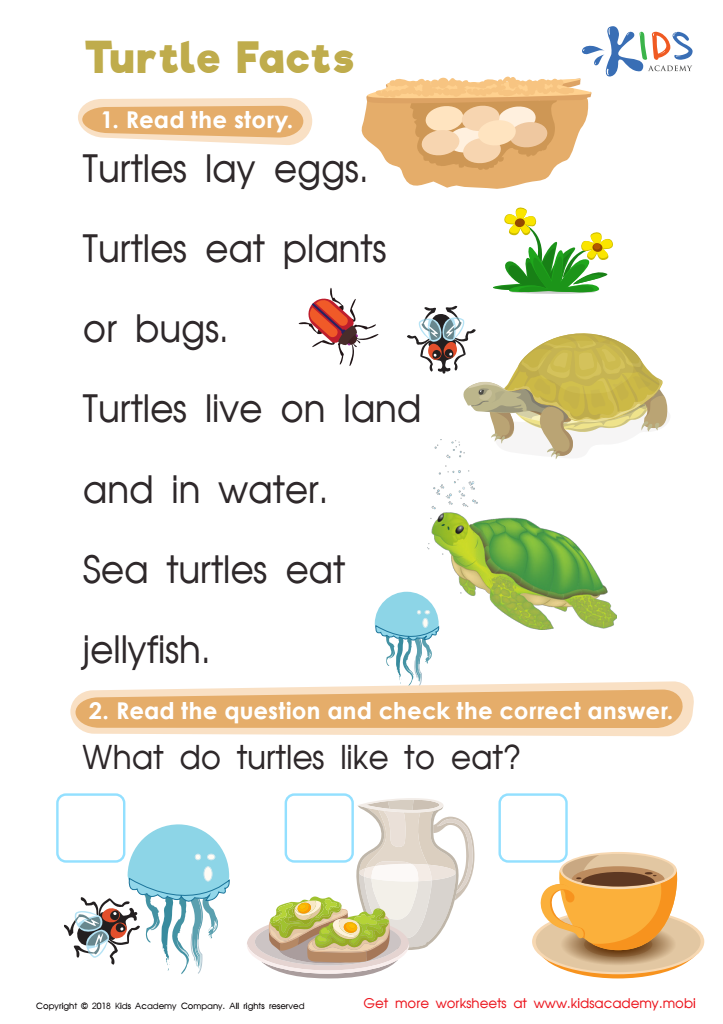

Turtle Facts Worksheet
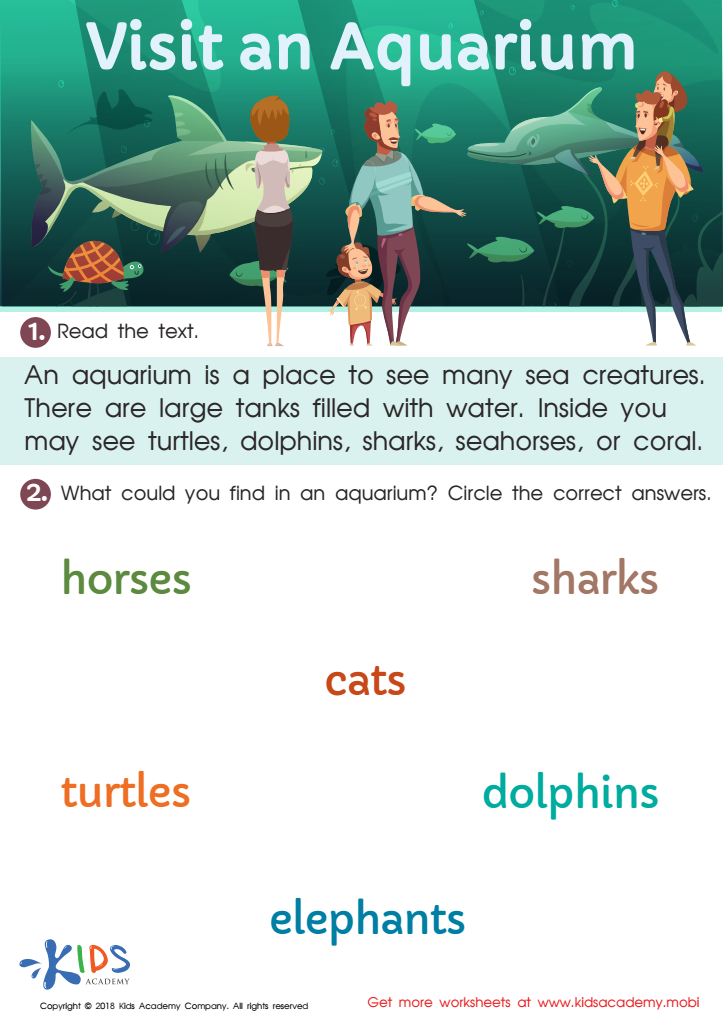

Visit an Aquarium Worksheet
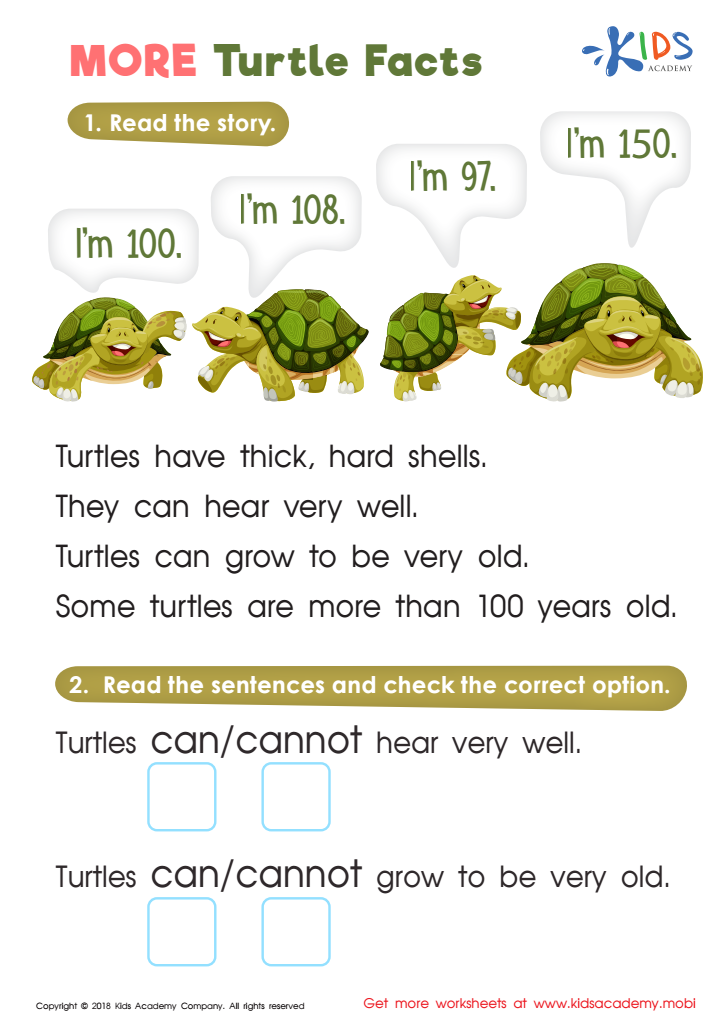

More Turtle Facts Worksheet
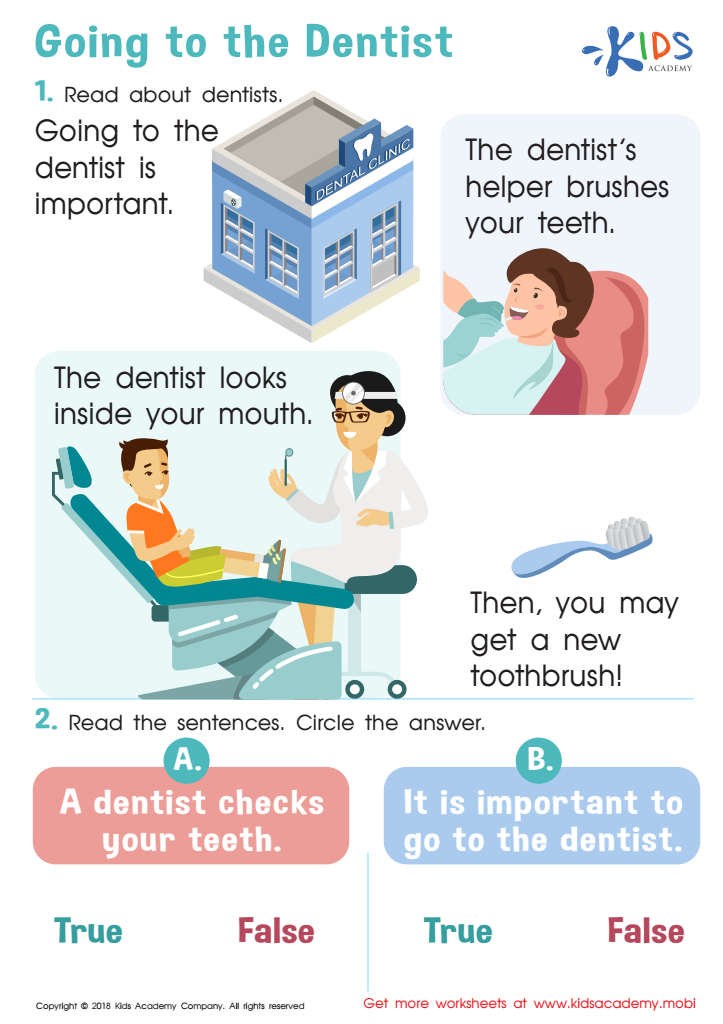

Going to the Dentist Part 2 Worksheet
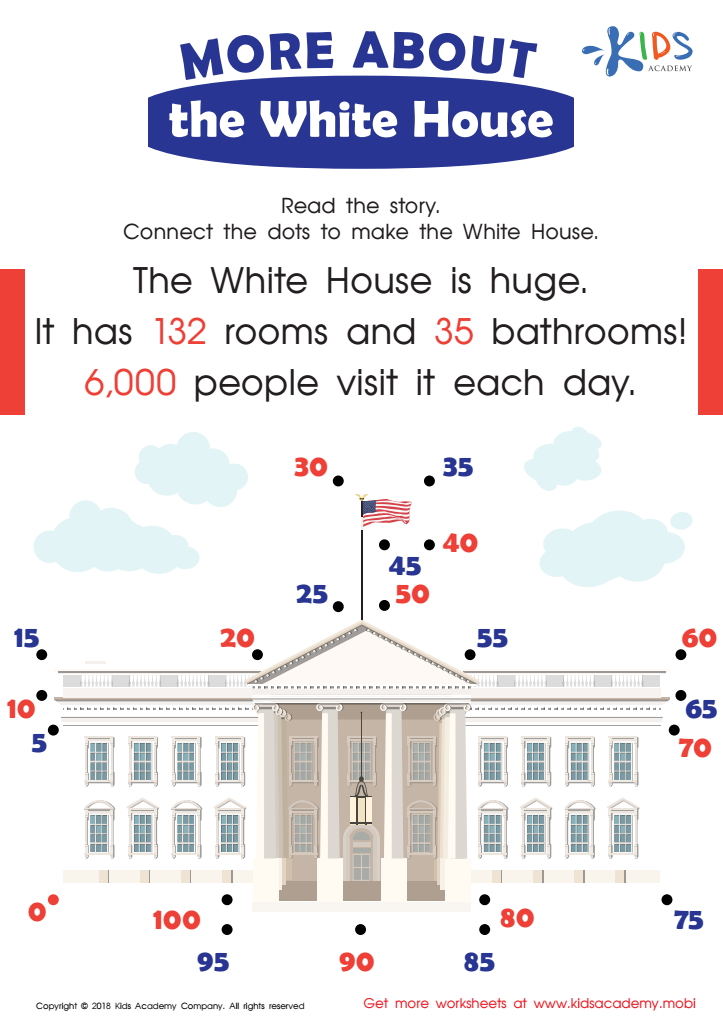

More About the White House Worksheet
Reading comprehension is a crucial skill that lays the foundation for a child's lifelong learning and academic success. For children ages 3-8, engaging materials like easy reading non-fiction not only capture their interest but also introduce them to real-world concepts. This genre encourages curiosity about nature, science, history, and other topics, fostering a love for learning beyond the classroom.
Parents and teachers should care about reading comprehension in this age group because it enhances vocabulary and critical thinking skills. Developing comprehension early helps children connect ideas, answer questions, and make inferences, establishing essential cognitive skills. Moreover, non-fiction reading cultivates discernment, allowing children to differentiate facts from opinions, which is increasingly important in today's information-saturated world.
Additionally, easy reading non-fiction supports diverse learning styles and backgrounds, making it accessible and relatable. By creating meaningful discussions around the content, adults can encourage children to express their thoughts and build confidence in their communication skills. Ultimately, when parents and teachers prioritize reading comprehension through engaging non-fiction texts, they empower young learners to explore, ask questions, and develop a sense of agency in their learning journey. This early investment in literacy yields comprehensive benefits that last a lifetime.
 Assign to My Students
Assign to My Students














